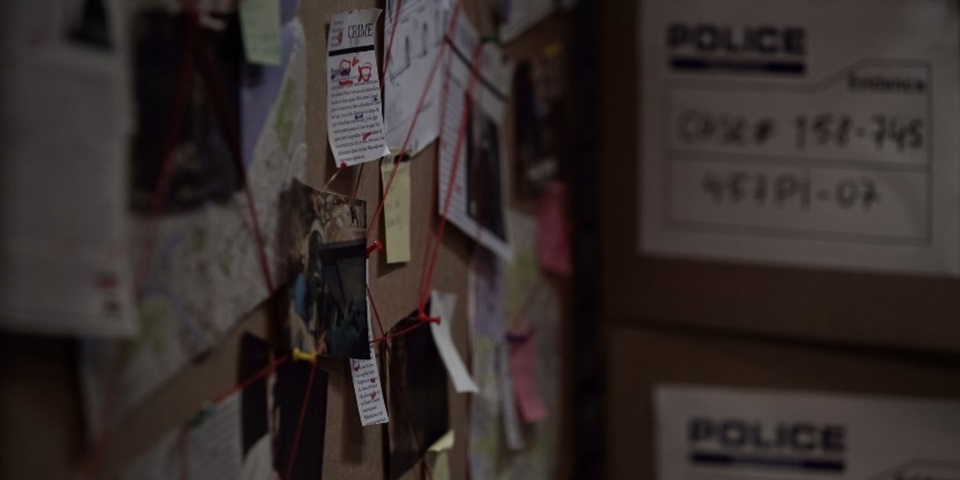News
New approaches to cracking cold cases

Murdoch University Senior Lecturer in Criminology, Dr David Keatley shares the need for new techniques in solving unsolved crimes.
Cold cases, known as acts of crime or suspected crime that have not yet been fully resolved, continue to perplex police departments worldwide. Dedicated police investigators may spend decades attempting to solve these cases.No longer the subject of recent criminal investigation, many cold cases have exhausted investigative leads, and therefore rely on the emergence of new knowledge or technical methods that can be used on the surviving evidence.
Murdoch University Senior Lecturer in Criminology, Dr David Keatley says many of our unsolved cases are solvable through the dedicated hard work of the police, and additional approaches that are being developed.
The need for new thinking
Dr Keatley explained new techniques like behavioural sequence profiling and statement analysis for timeline reconstruction are becoming more popular.“These techniques offer a new perspective or insight into an unsolved case,” he said.
“This is especially useful for cold cases where we do not have DNA evidence to work with, which creates a hurdle in suspect prioritisation.”
While police systems vary from country to country, Dr Keatley says there is always a constant in cold cases with dedicated officers spending countless hours working every angle of the case.
In many cold cases, the police may already have a prime suspect but lack the level of evidence needed to make an arrest.”Dr Keatley has spent the past six years investigating complex statistical and methodological approaches, that don’t rely on DNA evidence, to help solve unsolved crimes.
“I began researching the timelines of offenders including their life histories, as well as their crime-scene specific offender patterns. The aim was to build temporal profiles of offenders to assist with suspect prioritisation,” he said.
The art of deduction
Dr Keatley’s research has seen him consult with police on many cold cases worldwide, including some high profile ones.“A lot of my work revolves around ‘timeline reconstruction’, understanding the timeline of events in the sequence it occurred,” he said.
“I integrate all the available information, from crime scene photos and eye-witness reports, to statements made by suspects, friends, family, and anyone related to the case.”
The criminology expert says his deduction skills are often put to the test, needing to be careful to not believe everything at face value.
“As part of this work, I am constantly developing methods to assist with cases, from timeline analyses to statement analysis for interrogations – can we spot when someone is lying?” he said.
“For example, I am currently consulting on cases involving crime scene staging, in which the scene is set-up to look like something it is not – often a murder presented as a burglary gone awry.
“Deception detection in an important skill to analyse the validity of what I’m being told. Is someone trying to misdirect me?”
Extracting new information
Dr Keatley says an important part of cracking cold cases is the ability to extract new information. And you need to get creative.“In every case ‘someone knows something’, and most of the time they might not realise what they know is important,” he explained.
While working with Police Detective Susan Cormier, in Pawtucket Rhode Island, Dr Keatley saw first-hand how she developed and introduced the use a of cold case playing cards.
The decks feature details of unsolved murders, usually the victim’s name and photograph with a private number for inmates to call. This technique also provides some comfort to the loved ones of the victims – reminding them that the case may remain unsolved, but their loved ones are not forgotten.
“Playing cards are cheap, easy to make and distribute. They serve as an effective way to generate new leads and information for cold cases, which feed into larger databases and assist in suspect profiling,” said Dr Keatley.
“All it takes is a comment or statement from someone to open a new pathway or route to closing the case. Their insight can help build the evidence needed against a prime suspect or develop new profiles.”
Dr Keatley has since spoken to Western Australia Police about designing a deck of cold case playing cards for Western Australia.
Dr Keatley says police departments around the world are becoming more open to gaining outside help from agencies, researchers and experts with different skillsets.
“Cold cases are, by their very nature, harder to solve – sometimes the information is extremely limited, and you have very little to go on. I have heard detectives refer to it as a ‘psychological chess game’ – you versus the killer,” he added.
“Being able to help solve these mysteries is a large part of why I do what I do.
“Alongside that is the part few of us talk about: those left behind, the friends, family, and loved ones. I feel honoured to be a part of cases, aiming to try and bring them some closure.”
From theory to practice
Dr Keatley is now teaching how to use these techniques in the Masters of Criminology at Murdoch University, where students combine theory with applied practice. The course is the first of its kind in Western Australia.“I teach my students what, why and how these techniques are used in policing today. We often apply the deductive methods used in cases I have consulted on to well-known cases,” he said.
“Some of the cases I have presented on include the Jeffrey MacDonald case, the Jonbenet Ramsey case, and the Zodiac!”
It’s no wonder behavioural crime investigation shows like ‘Mindhunter’ are always high on the Netflix recommended list.
News
New approaches to cracking cold cases
Posted on